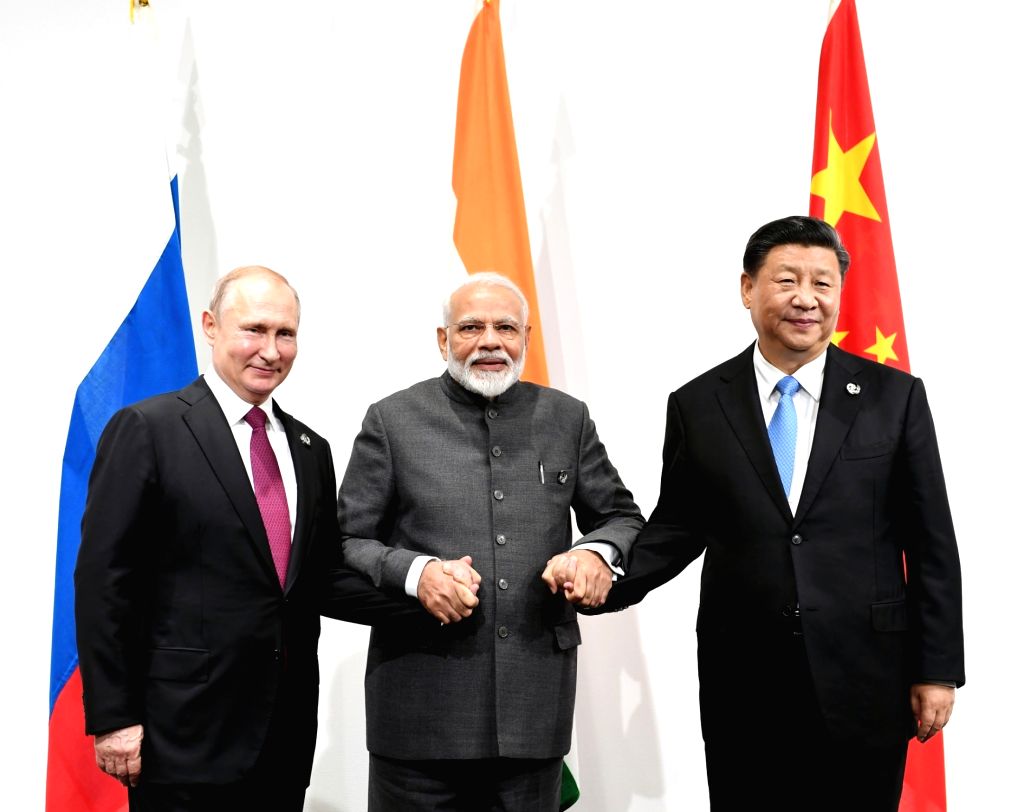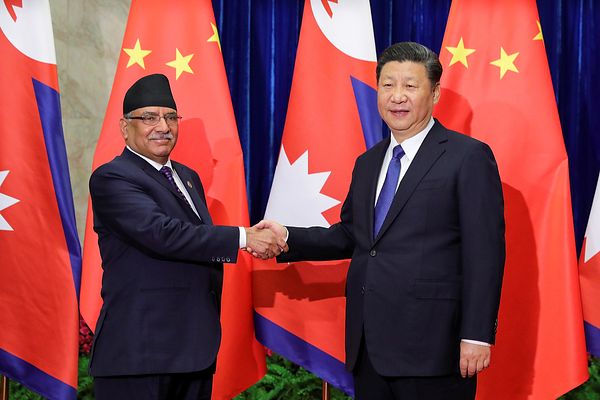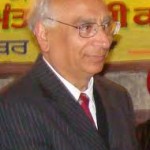DESIBUZZCanada
Events Listings
Dummy Post

International Day Of Yoga To Be Virtually Celebrated Saturday At 4pm

CANCELLED: Coronavirus Fears Kills Surrey’s Vaisakhi Day Parade

ADVERTISE WITH US: DESIBUZZCanada Is The Most Read South Asian Publication Online

SURREY LIBRARIES: Get Technology Help At Surrey Libraries

WALLY OPPAL: Surrey Police Transition Update On Feb. 26

GONE ARE THE DAYS - Feature Documentary Trailer

Technology Help At Surrey Libraries

Birding Walks

Plea Poetry/short Story : Youth Contest

International Folk Dancing Drop-in Sessions
India Needs To Balance It’s Act With Russia, America And China
- July 14, 2020


By Dr. Sawraj Singh
India needs to balance its relations with all major powers of the world, particularly with Russia, America and China. We can say that India needs friendly relations with Russia, cordial relations with America and working relations with China. America is the most powerful country at this time. However, it is losing influence and is generally on the retreat. Russia has reemerged as a significant player in the world scenario. China is a rising power and it seems that it is going to replace America as the most powerful country. India cannot tilt toward any one major power and has to do a balancing act with them. In order to do this, India has to analyze and understand the realities and the evolving trends in the world.
After the Second World War, the world was divided into two camps: One led by America and the other led by the Soviet Union. This can be called a bipolar world. Tensions between the two camps led to the Cold war. After the collapse of the Soviet Union, America became the only superpower in the world and the world became unipolar. However, after the rise of China as a world power and the reemergence of Russia as a significant player in world affairs, and the emergence of other countries such as India and Iran as important players in regional and world affairs, the world is becoming multipolar.
The major trends in the world are rise of the east and decline of the west. Balance of power is shifting from the west to the east. Instead of America or Europe, Asia is becoming the leading region of the world. It is becoming obvious that the 21st century will be Asia's century. India and China are the two largest countries in Asia. Their role in Asia's century is crucial. Similarly, India, along with Russia and China, has to play a very important role in the transition of the present unipolar world into a multipolar world.
Russia has consistently remained India's most reliable and trustworthy friend since India's independence. We can look at the voting pattern in the United Nations and how many times India and Russia were on the same side against America and the western countries. Russia vetoed anti-India resolutions initiated by America and the western countries. Russia has remained the largest supplier of weapons to the Indian army. Even today, more than 60% of Indian Army's heavy weaponry is of Russian origin. Russia has helped India to develop its nuclear energy.

After the collapse of the Soviet Union, India has moved closer to America. Trade between the two countries flourished. Many Indian doctors, engineers, scientists and students have migrated to the US and are playing a very important role in running many important American institutions. India is very concerned with the rise of China as a very powerful country in its neighborhood and looks at America as a balancing force against rising Chinese influence. However, India cannot be seen as tilted toward America. India has joined the quadrilateral alliance of America, Japan, Australia and India. China views this alliance as an American move to contain China. Therefore, being a member of this alliance will be perceived by China as an anti-China stand. Moreover, India was the pioneer and leader of the Non Aligned Movement and joining an alliance goes against India's fundamental policy.
India fought the 1962 war against China and has an ongoing border conflict with China. India just had a violent military confrontation with China. However, in spite of these differences India has fundamental identity of interests with China on several issues. India and China have many common economic and political interests. India is a member of the BRICS, the Shanghai Cooperation and the Asian Infrastructure Development Bank. India is drawing major benefits from all of these organizations. Moreover, India cannot get a just, fair and equal treatment in the present American and western dominated unipolar world order because this is based upon injustice, unfairness and inequality. India and China share a common interest in changing this order to a multipolar world order.
If India can maintain balanced relations with the three major powers, then it will be very conducive for peace and prosperity of the world. However, if it is seen tilted toward one and aligned with it against the others, then the consequences can be disastrous. The Indian subcontinent can become an arena for the most destructive Third World War. At present, America is desperate to maintain its hegemony at any cost. Therefore, America poses the greatest risk for starting the Third World War. While maintaining cordial relations with America, India has to avoid becoming a tool of American war mongering policies. Similarly, while maintaining its independence, it should join Russia and China for realizing a multipolar world order and for countering American efforts to push the world to a Third World War and making the Indian subcontinent an arena for this.
Western capitalism is now in a state of terminal crisis and may collapse before the middle of the century. We need an alternative model of development. Russia and China have adopted different models of development. Sri Guru Granth Sahib also provides us an alternative model of development that is based upon universal concern and universal welfare. These concepts can be universally accepted. At least to my knowledge, I used the word multipolar world for the first time. I felt that the concept of a multipolar world was based upon the philosophy of Guru Nanak, the founder of the Sikh religion. Guru Nanak's message was of love, tolerance, peaceful coexistence, pluralism and of unity in diversity. All these are essential elements of a multipolar world order.

Dr. Sawraj Singh, MD F.I.C.S. is the Chairman of the Washington State Network for Human Rights and Chairman of the Central Washington Coalition for Social Justice. He can be reached at sawrajsingh@hotmail.com.











